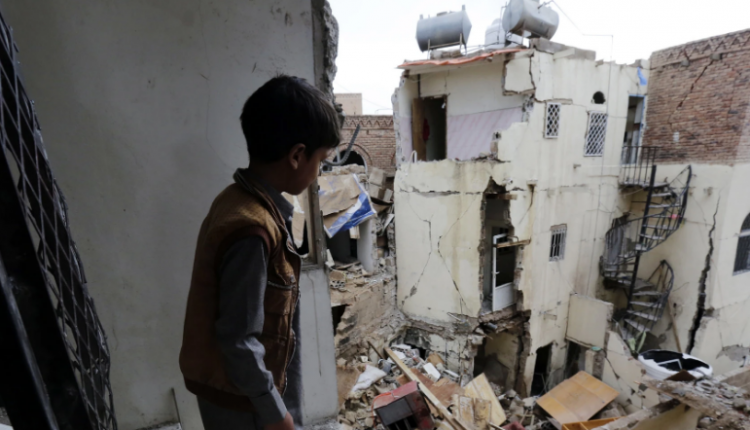Yemenis are paying the price of the war with Iran!!
YemenExtra
SH.A.
 By: Nicholas Kristof
By: Nicholas Kristof
Just a few days ago, bombs (perhaps American made) killed four Yemeni children. Every 12 minutes, another child in Yemen dies.
Yemen is a complicated place with many bad actors, but here’s the bottom line: Because of our enmity toward Iran and our bond with Saudi Arabia, we are helping to starve and bomb Yemeni children.
With tensions in the region high, Saudi Arabia is now encouraging the United States to escalate the hostilities and order a military strike on Iran. “They must be hit hard,” Arab News, a newspaper with ties to the Saudi government, declared on Thursday.
Beware. That was the Saudi line as well in 2015 when Saudi Arabia’s Mad Prince, Mohammed bin Salman, intervened in Yemen. He wanted to show his toughness and assumed that his armed forces would crush an Iran-backed faction there called the Houthis.
Instead, the Saudi intervention resulted in Iran gaining influence in Yemen, while the Saudis have helped cause what the United Nations calls the world’s worst humanitarian crisis. With talk of American conflict with Iran again in the air, Yemen should be a reminder that wars are easy to get into, harder to exit.
It is Saudi Arabia and the United Arab Emirates that drop the bombs on Yemen, but Washington supplies weaponry and intelligence that allow this war to drag on indefinitely. American policy is to support the starvation of Yemeni children because they are ruled by a faction with ties to Iran.
This should not be a partisan issue. President Barack Obama backed the Saudis in Yemen, and President Trump has doubled down on that support.
Most presidential candidates (with the exception of Senator Bernie Sanders, who has been a strong opponent of the Yemen war) don’t mention Yemen much, and it receives little public attention. I’m writing about it partly because I was able to slip through the Saudi blockade into Yemen late last year, and I’m haunted by seeing my tax dollars go to help starve children to death.
Congress passed a bipartisan measure to end U.S. involvement in the war, but Trump vetoed it last month. A recent U.N. study calculated that if the war ends this year, it will have claimed 233,000 lives, and that if it continues until 2022, it will claim a total of 482,000 lives. If it lasts until 2030, the U.N. estimated, it will cause 1.8 million deaths.
“Every day things get worse,” Lise Grande, the U.N. humanitarian coordinator in Yemen, told me this month. “There isn’t anyone working today in Yemen who doesn’t believe that the only solution to this terrible, senseless crisis is to end the conflict. We have to face the fact that if fighting drags on, Yemen will be a failed state, unstable for generations.”
“Nearly every family has either lost someone, is hungry, has children out of school or is battling cholera,” Grande said. “It’s hard to understand why the lives of so many innocent people seem to mean so little.”
The Mad Prince’s rash interference in Yemen not only backfired and helped Iran, but a CNN investigation also found that it led Saudi Arabia to give American weapons to fighters linked to Al Qaeda. The chaos led to the cholera outbreak, which worsened recently, with more than 300,000 suspected cases so far in 2019.
Trump has said that if the United States doesn’t sell weapons to Saudi Arabia, then Russia or China will. But Saudi Arabia needs American spare parts, and it also buys U.S. weapons partly for the implicit security guarantee that comes with them. No other country can provide that security blanket.
“The Saudi military is dependent on American spare parts, logistics and munitions,” noted Bruce Riedel, a Middle East expert at the Brookings Institution. “If Washington uses its enormous leverage, the Saudis have no choice but to end the war.”
Views expressed in this article belong to the authors.

